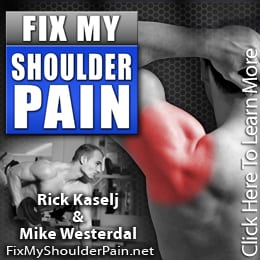How Do You Get a Frozen Shoulder?
Frozen shoulders do not sound comfortable and generally are not fun occurrences. Apart from describing what a frozen shoulder is, it is also important to understand how you get a frozen shoulder. While there may be some situations where the cause of a frozen shoulder is unclear, known causes for frozen shoulders include inflammation, disease, surgery, immobilized shoulders, muscle weakness and poor posture.
How Does Frozen Shoulder Occur?
A frozen shoulder occurs when the capsule that houses the shoulder joint is inflamed and prevents the bones in the shoulder area from having normal movement. Within the shoulder joint capsule of a normal shoulder, ligaments serve the function of holding the shoulder joint bones in place.
However, when inflammation occurs inside the capsule, the ligaments are unable to perform this function and the bones in the shoulder joint “freeze” or do not get the required support. Hence, a frozen shoulder emerges. Adhesive capsulitis is another name for a frozen shoulder. In essence, the shoulder freezes in terms of movement or range of motion. The shoulder joint stiffens and slowly, a person begins to notice a decrease in their ability to use the shoulder joint or area.
Frozen Shoulder and Inflammation
Inflammation plays a significant role in contributing to the presence of frozen shoulders. Hence, preventing inflammation or properly treating or managing an inflamed shoulder capsule can prevent the shoulder capsule ligaments from degenerating and causing the shoulder bones to lock or freeze.
Other Causes for Frozen Shoulder
You can also get a frozen shoulder from a traumatic event or episode that involved the shoulder or parts of the body that are near the shoulder. For instance, an accident that affected the shoulder could render various parts of the shoulder dysfunctional and create a frozen shoulder.
A rotator cuff injury could also lead to a frozen shoulder. Any injury or condition that directly affects the way the ligaments hold the shoulder bones can cause these bones to shift, lock and freeze.
In addition to external factors which could impact the shoulder area such as falls, slips, tripping, bumping into objects, accidents, physical hits or blows to the shoulder area and traumatic occurrences from other external forces, ailments within the body can also be one of the ways through which a person gets a frozen shoulder.
Disease and pre-exiting medical conditions in the body can cause frozen shoulders too.
Sometime, one set of symptoms may lead to a whole new level of problems and other symptoms. In some cases, such pre-existing medical conditions are associated with the existence of inflammation in another part of the body, which can then spread to the shoulder area. As inflammation moves through the body, the shoulder capsule may get infected. Sometimes an existing medical condition, disease or injury simply makes the body weaker and more prone to other medical issues because the immune system has been compromised. Diseases such as heart disease, diabetes, panic disorders, arthritic and others can also contribute to the occurrence of frozen shoulders.
Medical Conditions that Could Lead to a Frozen Shoulder
Hence, carefully observing any symptoms associated with the shoulder while going through other medical experiences is quite important. More examples of medical conditions that could cause a person to develop a frozen shoulder include bursitis and tendinitis. Arthritis, trauma, overuse of a body part, infection and many more conditions can cause bursitis which is a bursa inflammation.
The bursa sacs exist between the skin and the tendons around the skin area. When inflammation occurs within the bursa sacs, it can affect the shoulder capsule and in many cases, bursitis does occur quite near the shoulder. There are also times when the true cause of bursa sac inflammation may be unknown. However, due to rampant occurrences of bursitis around joints including the knee and elbow, there is the inclination to consider a relationship between this type of inflammation and joints such as the shoulder, knee and elbow. Similarly, tendonitis is another type of inflammation that affects tendons.
When a tendon is injured during activities or events, the injury can cause inflammation of the tendon to occur. Quite similar to bursitis, the joint areas seem to be more susceptible to such conditions due to their main function of enabling movement, whether it is at the hip, knee, elbow, shoulder or any other type of joint that exists in the body. Inflammation can spread, especially from tendon to tendon or from other ligaments and cartilages in the body. Apart from inflammation, another way to get a frozen shoulder is through immobilization of the shoulder.
Joints need to move and people may not realize how important this movement is because, normally, the joints are constantly moving as people walk, sit, run, crawl or perform other activities that cause the joints to become active. However, when joints become immobilized or inactive for an abnormally long time, this can be problematic.
Situations that can cause immobilization of the shoulder area include surgery. After undergoing surgery involving the shoulder or surrounding areas of the body such as the chest, patients may be required not to move the shoulder area. In most cases, the shoulder area is immobilized by applying acceptable restraints such as casts or slings which serves the purpose of ensuring that no movement is possible from the shoulder area. Although this procedure is meant to protect the surgery patient from disrupting their recovery process after surgery, the immobilization of the shoulder can unfortunately cause a frozen shoulder. Joints need to be used and moved. When movement is impossible or prohibited, the joint can become stiff, leading to a frozen shoulder.
Last Word on How Do You Get a Frozen Shoulder
The development of a frozen shoulder is a gradually process. Typically, the shoulder bones will not suddenly be unable to move. The restrictions in range of motion happen gradually until it is just too painful or impossible to move the shoulder. Although there are known circumstances that can contribute to a frozen shoulder, there may also be cases of frozen shoulders that occur for no known reason. Despite medical attention and tests to determine the cause of frozen shoulders in some people, a tangible root cause may still not be determined. Nevertheless, the symptoms of a frozen shoulder are quite clear. The gradual restriction of motion and the presence of pain in the shoulder will not go unnoticed.
Rick Kaselj, MS



